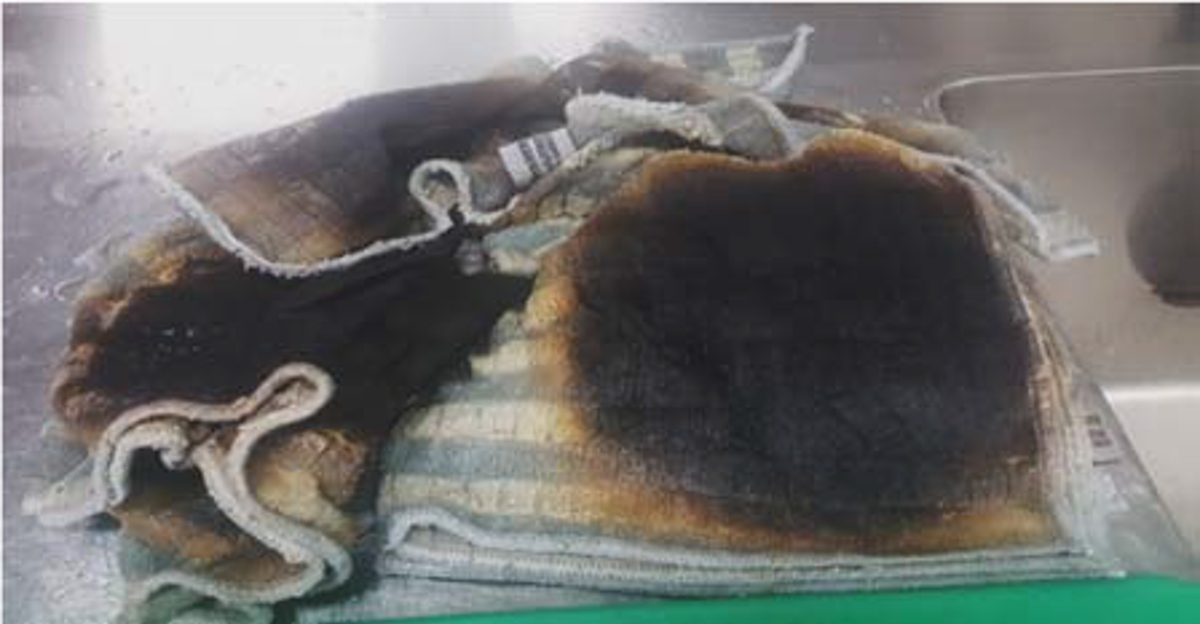Auto-ignition of laundry items
- Safety Flash
- Published on 23 August 2018
- Generated on 23 January 2026
- IMCA SF 18/18
- 2 minute read
Jump to:
Cloths used for general galley cleaning were removed from a tumble dryer, immediately folded and piled in a steel bucket.
What happened?
Three hours later they were stowed in a cupboard. After a further three hours (six hours after removing the cloths from the dryer) a burning smell and the presence of smoke were reported. Upon investigation, the cloths were found smouldering. Immediate action was taken, and no further damage was noted.

What went wrong? What were the causes?
- Following the fire, it was discovered that the cloths were still contaminated. This indicates that the items had been washed at the wrong temperature (40° instead of 90°) to reduce the wash time. This was not sufficient for them to be fully cleaned.
- Either the cloths were removed from the tumble dryer prior to completion of the full cool down cycle or the wrong temperature setting was used (too high). As a result, the hot contaminated cloths were not cooled before being stowed. This led to them starting to smoulder.
What actions were taken? What lessons were learned?
- Ensure items are washed at suitable temperatures to remove residue.
- Ensure that the correct temperature setting is selected and that cool-down cycles are completed when using tumble dryers.
- Hot laundry should never be folded and stowed. Allow suitable time for cooling down.
- Discard cloths that can no longer be cleaned.
- Reiterate these lessons to all catering crew.

IMCA notes that this is an ‘evergreen’ safety issue that has come up often before. Our members may wish to bring this potentially serious issue once again to the attention of their management and crew.
Related Safety Flashes
-
IMCA SF 03/18
31 January 2018
-
-
IMCA SF 16/17
27 June 2017
-
IMCA SF 07/16
31 March 2016
-
IMCA SF 03/16
27 January 2016
-
IMCA SF 16/09
10 November 2009
IMCA Safety Flashes summarise key safety matters and incidents, allowing lessons to be more easily learnt for the benefit of the entire offshore industry.
The effectiveness of the IMCA Safety Flash system depends on the industry sharing information and so avoiding repeat incidents. Incidents are classified according to IOGP's Life Saving Rules.
All information is anonymised or sanitised, as appropriate, and warnings for graphic content included where possible.
IMCA makes every effort to ensure both the accuracy and reliability of the information shared, but is not be liable for any guidance and/or recommendation and/or statement herein contained.
The information contained in this document does not fulfil or replace any individual's or Member's legal, regulatory or other duties or obligations in respect of their operations. Individuals and Members remain solely responsible for the safe, lawful and proper conduct of their operations.
Share your safety incidents with IMCA online. Sign-up to receive Safety Flashes straight to your email.